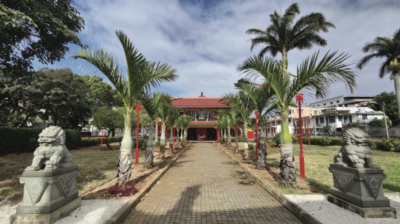"Flooding our eyes with rubbish": urban waste management in Maputo, Mozambique
Critical voices on urban management tend to portray conflicting governmentalities, with western 'top-down' municipal development models on the one hand, and the everyday practices and diffuse forms of power of the poor majority on the other. This paper takes solid waste (lixo) management in Mozambique's capital city Maputo and its informal settlements as an entry point for assessing the relationship between these two urban development perspectives. It shows that while the Municipality considers itself to be working actively through public-private partnerships to handle the complex issue of waste management in the informal areas, people in these informal settlements, despite paying a regular fee for waste removal, continue to experience lixo as a serious problem and see its persistent presence as a symbol of spatial and social inequalities and injustice. The paper is formulated as a conversation between the city planning and management and the community side of the equation - leading to a joint set of proposals for how the management of such a contentious part of African urban life can best be dealt with.
https://doi.org/10.1177/0956247818780090



![Corona überleben: Die Figur der:s Überlebende:n als Trägerin von Hoffnung und Angst in den Politiken einer Krise im Werden [Surviving Corona: The figure of the survivor as bearer of hope and fear in the politics of an emerging crisis]](http://www.cmi.no/img/400/18259-Corona-und-mediale-ffentlichkeiten.png)
